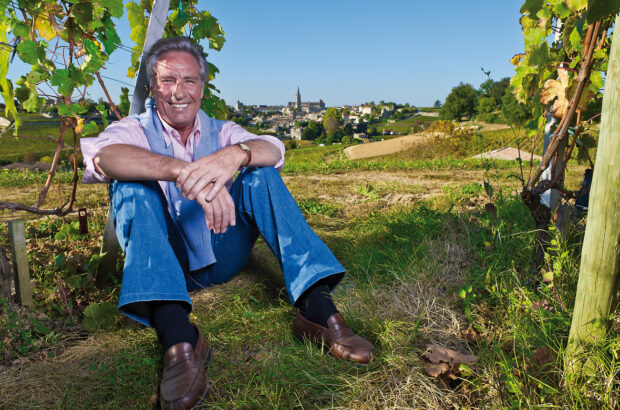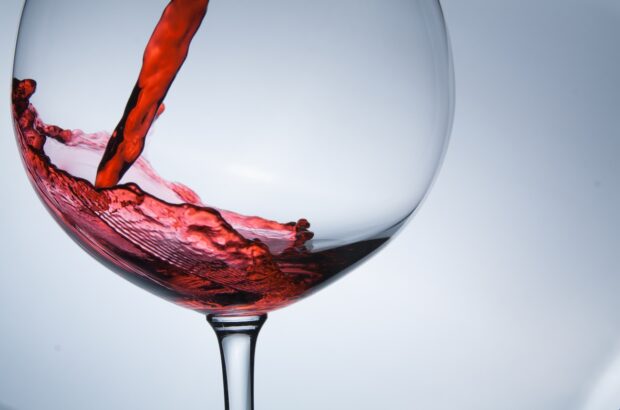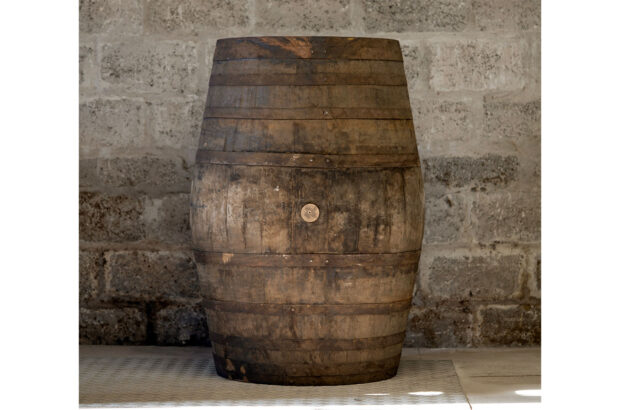Two new generic names coined for English sparkling wine have had a very mixed reception in the English wine community.
Nicholas Coates and Christian Seely
Hampshire-based producer Coates & Seely has coined the term ‘Britagne’ – pronounced ‘Britannia’ – in the hope it will be adopted for English sparkling wine.
Christian Seely, whose day job is managing director of the wine division of AXA Millésimes, which includes Chateaux Pichon-Longueville in Bordeaux and Quinta do Noval in Portugal, believes English sparkling should have its own generic name to give it with greater prestige and reflect its increasingly high standing.
Launching their first wine last week, a sparkling rosé made from 65% Pinot Noir and 35% Pinot Meunier, Seely and his fellow-founder Nicholas Coates said their dream was that in five, 10 or perhaps 100 years’ time, people might walk into a bar and ask for a glass of Britagne.
‘We don’t believe that “English Sparkling Wine” or “Quality Sparkling Wine” does our product justice – it’s too literal and bland,’ Seely said. ‘It’s like calling a Jaguar a Smart British Motor Car.
‘The term “Britagne” – which should be pronounced “brit-an-ye” rather than to rhyme with Champagne – communicates the fact that it is a sparkling wine produced in Britain but rivalling that of its Gallic neighbours.’
Wines would have to adhere to certain criteria to be designated ‘Britagne’ – made from the Champagne grapes, and with a second fermentation ocurring in bottle. The production method would be referred to as the ‘Méthode Britannique’.
‘An important founding principle would be to demand a minimum level of quality but to tolerate differences in style,’ said Seely. ‘The English sparkling wine industry is at a creative stage, and it wouldn’t be right to dictate style.’
Reaction from the established English sparkling wine community has been varied.
Leading producers Nyetimber and Ridgeview both agree that there is a case to be made for a category name. Nyetimber’s CEO Eric Hereema refused to comment on the term ‘Britagne’, however, saying that the English sparkling wine industry is still in its infancy. ‘It’s still too early for a category, and so too early to decide on a name.’
Ridgeview’s CEO Mike Roberts, who is also chair of the trade association English Wine Producers (EWP), has, in contrast, been working for some time on plans to see the term ‘Merret’ adopted as the generic term for English sparkling wine. English physician and scientist Dr Christopher Merret was the first to document the deliberate addition of sugar for the production of sparkling wine, in the 17th century.
Ridgeview currently owns the copyright for the term and uses it own its own products, but envisages it being a publicly owned trademark used by accredited producers meeting strict production criteria – ‘we would have virtually the same regulations as in Champagne, if not more stringent’.
Though Roberts would like to see the rules agreed for accreditation by next summer, he concedes that many English producers would oppose the move. ‘Controlling the use of such a trademark, and monitoring standards, is conceivably the kind of role that EWP could take on, but many members would argue against it because they wouldn’t meet the criteria. Those including Seyval Blanc in their wine, for instance, would automatically be excluded.’
It would be vital, he added, that members contribute towards the cost of marketing the generic term. ‘None of it will work without a real marketing push behind the name.’
The EWP, as yet, has no official line on the issue, but expects further developments in the near to mid-term future, as the sparkling wine industry gathers momentum. ‘Discussions within the industry so far have been informal,’ says marketing manager Julia Trustram Eve.
In Cornwall, southwest England, award-winning winery Camel Valley says it would never adopt any such generic term. ‘We have spent 20 years getting to where we are today, and we wouldn’t want to be lumped together with wines of varying quality,’ says owner Bob Lindo.
‘I can see the attraction for a new entrant to the market, but not for an established brand. Bollinger is more about Bollinger than it is about Champagne. On the Britagne name, I wouldn’t take it for granted that Champagne will be comfortable with that, however it is pronounced.’
Lindo added that English producers should be celebrating their English origins, and that the best generic term in his view would be the name of the region. ‘The industry doesn’t need a gimmicky name,’ he said. ‘ “English sparkling wine” might sound pedestrian to the English, but it works very well in export markets. The Americans and Japanese, for instance, love buying English things.’
A generic name isn’t always of benefit, added Lindo, who gave the example of Cava. This is a point also made by Stephen Skelton MW, a consultant to the English wine industry who first made wine in the country in 1977. He was scathing about the idea of introducing a generic term.
‘Look at Cava, Sekt and Cap Classique – none of those confer the notion of prestige that are meant to. We should put our marketing emphasis on the product, and on showing that it can be every bit as good as Champagne.’ He added that the lack of a generic term hadn’t held back successful sparkling brands such as Pelorus from New Zealand, or Schramsberg from California.
Skelton believes that Roberts has ‘a cat’s chance in hell’ of seeing the ‘Merret’ term adopted more widely. ‘The problem is that Ridgeview has used the term since it started, so it is associated with them. Also, Merret didn’t play a key role in the history of sparkling wine. He merely documented what was happening – he never got his hands dirty.
‘But even if someone thought up a dream name, some producers wouldn’t want to use it,’ added Skelton. ‘And as for getting producers to pay for marketing of the generic term, forget it – many won’t even cough up to be members of the UK Vineyards Association. These campaigners for a generic name are wasting their time.’
Written by Amy Wislocki







